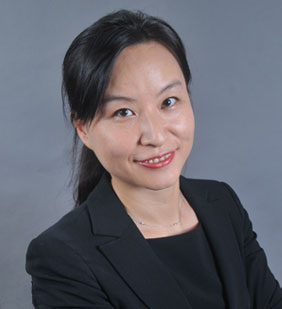Wei Ding, Ph.D.
Wei Ding received her Ph.D. degree in Computer Science from the University of Houston in 2008. She is a Professor of Computer Science in the University of Massachusetts Boston. Her research interests include data mining, machine learning, artificial intelligence, computational semantics, and with applications to health sciences, astronomy, geosciences, and environmental sciences. She has published more than 130 referred research papers, one book, and has three patents. She is an Associate Editor of the ACM Transaction on Knowledge Discovery from Data (TKDD), the ACM Transactions on Intelligent Systems and Technology (TIST), and the Knowledge and Information Systems (KAIS). She served as an editorial board member of the Journal of Information System Education (JISE), the Journal of Big Data, and the Social Network Analysis and Mining Journal. She is the recipient of the Best Paper Award at the 2011 IEEE International Conference on Tools with Artificial Intelligence (ICTAI), the Best Paper Award at the 2010 IEEE International Conference on Cognitive Informatics (ICCI), the Best Poster Presentation award at the 2008 ACM SIGSPATIAL International Conference on Advances in Geographic Information Systems (SIGSPAITAL GIS). She received the 2019 WISAY Distinguished Woman in Science Award from the Yale University, 2018 Outstanding Alumni Award and the Best PhD Work Award between 2007 and 2010 from the University of Houston. Her research projects have been sponsored by NSF, NIH, NASA, and DOE. She is an IEEE senior member and an ACM senior member.

- Email: wei.ding@umb.edu
- Contrastive Learning of Sentence Representations (2021)
- Mitigating Class-Boundary Label Uncertainty to Reduce Both Model Bias and (2021)
- Clustering Sparse Data With Feature Correlation With Application to Discover Subtypes in Cancer (2020)
- Multi-Source Causal Feature Selection (2020)
- A Novel Deep Learning Model by Stacking Conditional Restricted Boltzmann Machine and Deep Neural Network (2020)
- Catalysis Clustering With GAN By Incorporating Domain Knowledge (2020)